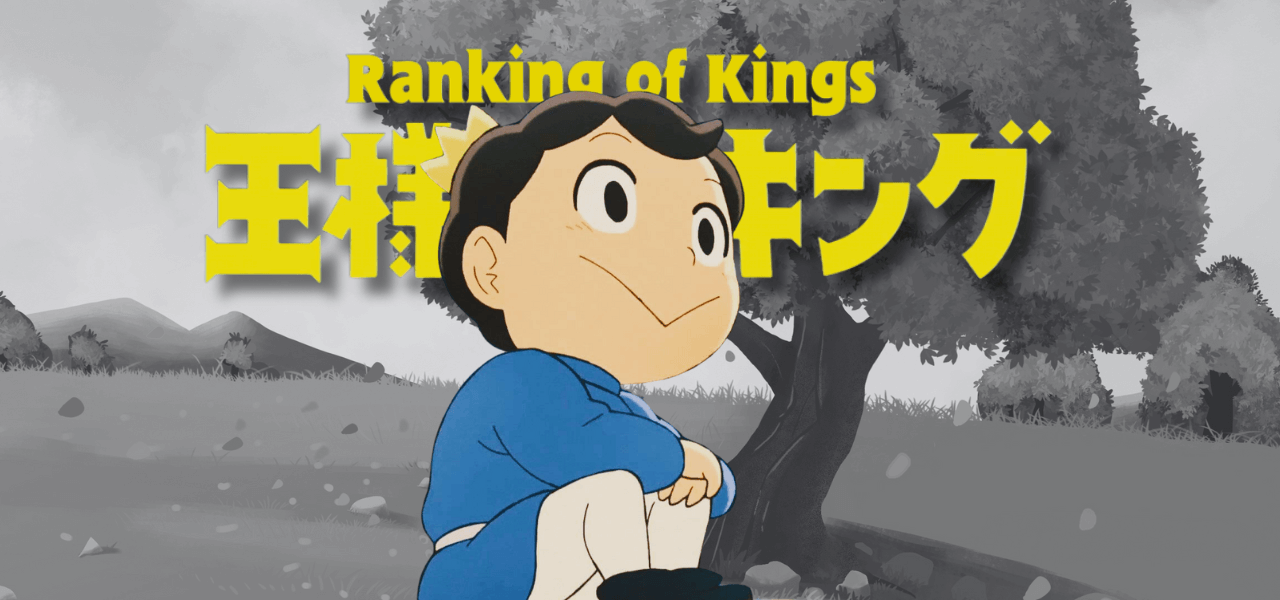“Ranking of Kings” – a tale about turning weakness into strength
Disability is an issue faced by many and is often discussed in the media and specialized literature. However, it is rarely reflected in artistic works or cinema. Any film on this theme attracts attention by its very nature, especially if it offers an interesting plot and a dignified representation of disabled individuals—making it almost a must-watch.
The series “Ranking of Kings” is an anime adaptation of the comics by Sōsuke Tōka, created by Wit Studio, known for “Attack on Titan.” The plot unfolds in a fantasy setting reminiscent of the medieval era but includes magic, demons, and a race of Gods—beings who watch over the kings of the mortal world through human intermediaries who evaluate their actions and compile a ranking of the best rulers. The ranking, although not always taken seriously, becomes an important plot element for those who aspire to enter it.
The central character is the young Bojji, whose father, the giant Boss, was the ruler of one of the kingdoms. His last will appointed Bojji as his heir. However, the problem is that the heir prince is physically weak (even unable to use a child’s sword) and is also deaf-mute!
Bojji, though he has every right to the throne and a sincere desire to rule, faces royal court members who believe (not without reason) that his stepbrother Daida should become the true ruler. Daida, despite his arrogance and fiery nature, is physically and mentally capable, unlike the deaf-mute Bojji.
The main character is understandably distressed by the situation, but fortune smiles on him unexpectedly when he meets Kage, a shadow from an exterminated clan of assassins. Kage feels sympathy and compassion for the young and very kind prince and decides to help him become king, although he understands that Bojji’s naive dream of becoming the best king in the world may not come true. Thus, this odd pair, the deaf-mute prince and the former assassin, embark on a journey to find a way to make Bojji king, while a real game of thrones brews in the kingdom of Boss.
The story told in the series “Ranking of Kings” is one of its main strengths. The plot is intricate, unpredictable, and very engaging. Over twenty-six episodes, along with the characters, viewers experience a real adventure-journey, full of mysteries, riddles, and underhand games of rulers, presented almost as intricately as in “Game of Thrones,” with several bold plot twists that immediately make you want to find out what happens next. In short, the plot captivates from the first episodes and doesn’t let go until the very end, as gripping as, say, Netflix’s “Stranger Things.”

The second undeniable strength of the series is the representation of disabled individuals, exemplified by the main character. “Ranking of Kings” shows that even if a person has a disability, no matter what it is, they can be worthy and, in some cases, surpass those without disabilities. It’s important to note that the character is not portrayed as a superhero but just a boy, albeit a prince. This makes his experiences more believable. The main thing shown is the hero’s path to becoming strong, which is natural and deserved.
Bojji is one of the best examples of disability representation, alongside Rory from “Inside I’m Dancing” and Charles Xavier from the 1992 “X-Men” series. In “Ranking,” as in these films, disabled individuals are shown primarily as people, honest and without undue pity, but with great compassion and a desire for the best for them. Bojji has a disability, but it does not prevent him from being kind, open to everything new, and always ready to help and support. It is precisely because of the boundless breadth of his heart that the heir prince overcame all his hardships. Much appreciation goes to the creators for such successful representation, which complements the story, not serving as its focus.
It’s also important to note that this is a very kind and bright work. It speaks to the viewer about, seemingly, thousand-times-discussed themes: good, evil, love for one’s neighbor, the world around, and oneself, but it does so carefully and without distracting from the adventure, so that the truisms do not irritate but, on the contrary, attract attention, allowing one to reflect. Watching it creates a strong sense that the authors wanted not so much to enlighten the viewer as simply to remind them of simple yet important truths while giving them a memorable adventure.
Concluding the discussion about “Ranking of Kings,” it’s worth emphasizing once again—this is a kind and engaging adventure with likable characters. This story is universal and very much like what an anime would look like if Pixar made it. It’s smart and heartfelt cinema, where everyone can find something for themselves. Moreover, it features one of the best examples of uplifting representation of disabilities.
